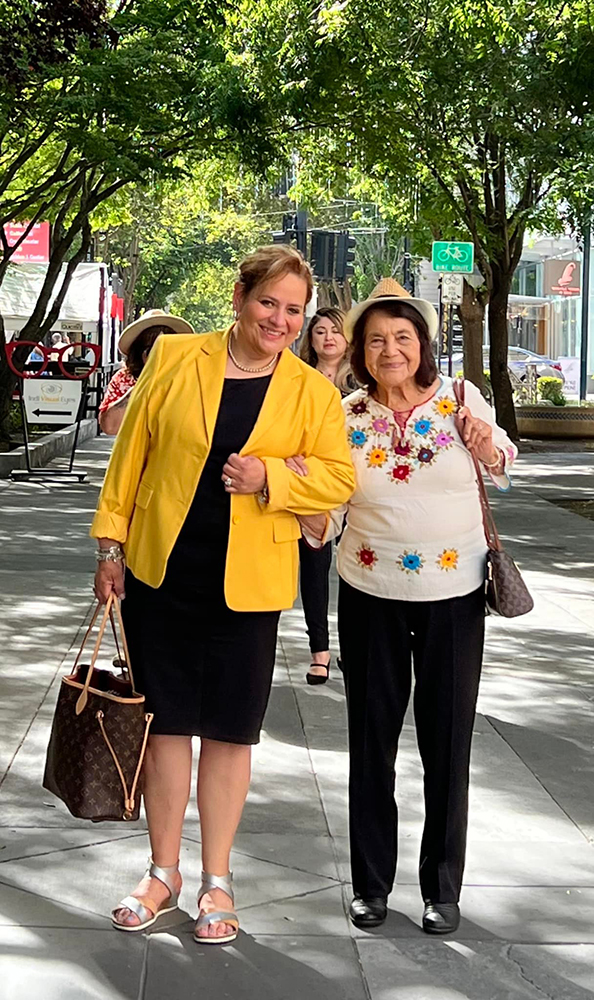Not Even a Global Pandemic Can Stop Dolores Huerta from Fighting for End-of-Life Options
Oct 15, 2021 community engagement Dolores Huerta Patricia Gonzalez-Portillo underserved communities

I met Dolores Huerta in 1998, during my days as a young reporter with the largest Spanish-language newspaper in the United States.
I reconnected with Dolores in 2015, months after I launched a Latino media campaign in California to garner support for medical aid-in-dying legislation from Hispanics, the nation’s fastest growing ethnic group and 37% of its population.
The iconic civil rights activist strongly supported the End of Life Option Act (SB 128), co-authored by her good friend in the California Senate, Senator Bill Monning. His staff advised me to reach out to Dolores to work together on an op-ed.
Dolores not only endorsed the bill with an editorial about her mother’s painful death from cancer. She joined us in news conferences, rallies and meetings with reluctant legislators, particularly Catholic and Latino ones, who opposed our compassionate bill.
Dolores' support was critical in the passage of the End of Life Option Act, signed by Governor Jerry Brown in 2015. It also was key to passing the Elizabeth Whitefield End of Life Options Act in her native state of New Mexico in 2021.
Dolores' support was also instrumental in the 2021 success of a California bill that would improve access to its five-year-old law by reducing the mandatory 15-day waiting period between the two requests for aid-in-dying medication to 48 hours. The bill also requires that healthcare systems post their medical aid-in-dying policies on their websites, increasing transparency for terminally ill patients who urgently need prompt access to information.
For the last six years, the iconic activist, known by her first name alone and her famous line “Si Se Puede” or “Yes We Can,” has testified in hearings, lobbied with us, authored numerous op-eds, and recorded a series of public service announcements in English and Spanish to urge legislators to support the full range of options at the end of life, including medical aid in dying. She is also a member of Compassion & Choices’ Latino Leadership Council.
Walking with Dolores in state capitals in California, New Mexico and Nevada has been the thrill of a lifetime for this South Texas border girl whose books at the University of Texas at Austin included full chapters on the legendary activist, a double presidential award recipient, recently named as one of USA Today’s ‘Women of the Century.
Dolores is still a force at 91, and not even a global pandemic can stop the legendary activist from being a powerful voice for terminally ill adults whose last wish in life is to die peacefully, without unnecessary suffering.
A memorable moment happened during the recent Five-Year Anniversary celebration of the California End of Life Option Act in June.
Dolores gave a few words to reinforce her commitment to fight for equitable access to quality health care and to ensure quality end-of-life care for people who are suffering from a terminal illness.
Dolores thanked the legislators and the staff at Compassion & Choices for helping to pass the law. The iconic activist specifically called out my name to thank me for not letting her ‘miss a beat’ or a ‘single ‘vote.’ I knew that was Dolores’ nice way of referring to my endless calls, texts and emails during the last six years.
Anyone who knows me, knows that I pride myself in being ‘persistent.’
Dolores gave it another name. She referred to Patricia Portillo as a ‘great organizer.’
And coming from one of the most famous organizers in American history, that is quite an honor…


